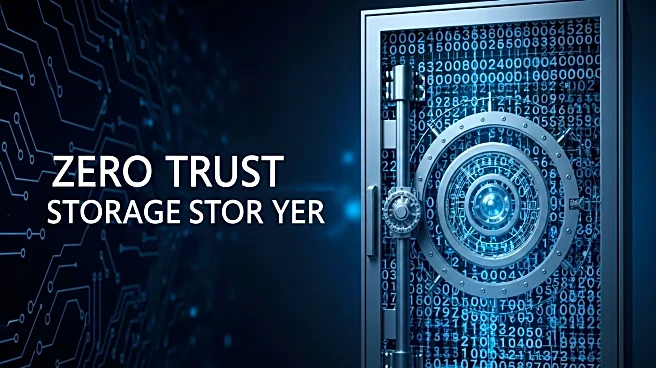What is the story about?
What's Happening?
The application of zero trust principles to the storage layer is gaining attention as a critical measure to enhance cybersecurity resilience. This approach stems from experiences during ransomware incidents where attackers targeted not only production systems but also backups, compromising recovery efforts. The need for zero trust-ready storage is underscored by recent attacks on organizations like Change Healthcare, where inadequate backup isolation led to significant losses. The evolving threat landscape demands robust security measures to protect data integrity and ensure rapid recovery capabilities.
Why It's Important?
Extending zero trust principles to the storage layer is crucial for organizations seeking to safeguard against increasingly sophisticated ransomware attacks. As cybercriminals develop advanced tactics to disrupt recovery processes, businesses must prioritize secure storage solutions to maintain operational continuity. This shift in cybersecurity strategy highlights the importance of comprehensive protection across all data layers, influencing industry standards and practices. Organizations that fail to adapt may face heightened risks and financial losses, emphasizing the need for proactive security measures.
Beyond the Headlines
The integration of zero trust principles into storage solutions reflects broader trends in cybersecurity, where traditional assumptions about data trust are being challenged. This paradigm shift necessitates a reevaluation of security protocols and investment in technologies that offer enhanced protection. The move towards zero trust storage also raises ethical considerations regarding data privacy and the balance between security and accessibility.
















